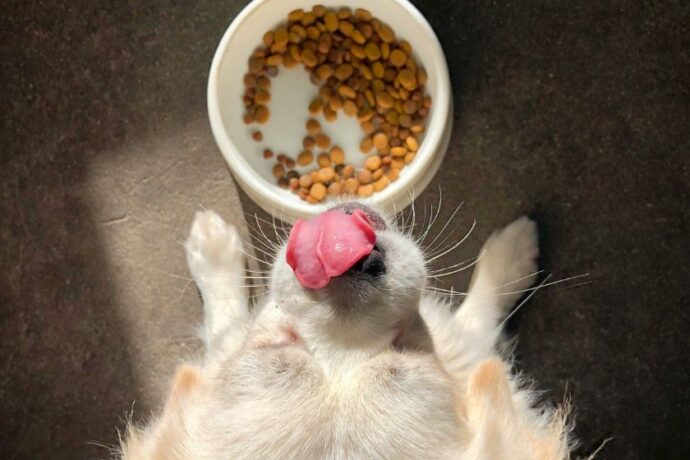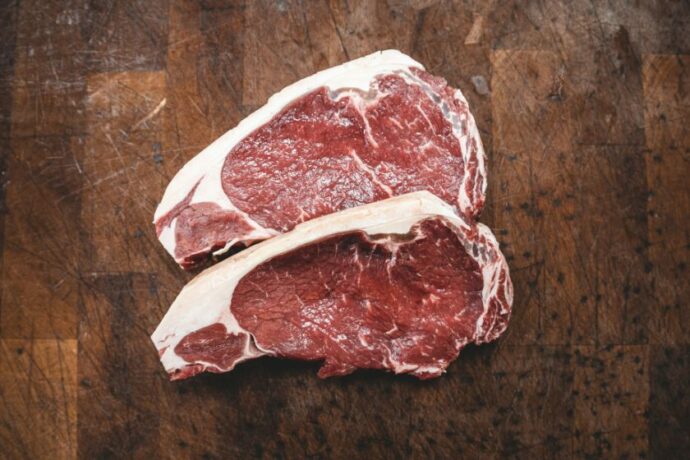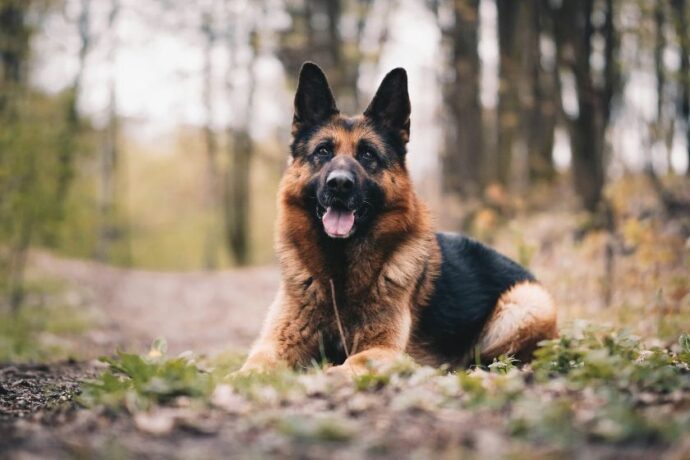
Pretzels might be a tasty snack, but they can have serious health consequences for dogs.
Pretzels are a quick and easy snack for people to enjoy in between meals, on the go, or as a savory side dish next to a main course. Since dogs are like family, you may be tempted to let your pup try a pretzel or two since you enjoy their flavor so much.
Before you feed your dog any human food, however, it’s important to look into the possible dangers. Pretzels may be perfectly safe for you to eat, but can dogs eat pretzels? The answer is no — dogs should not eat pretzels.
Are Pretzels Good for Dogs to Eat?
There are several reasons why dogs shouldn’t eat pretzels, but the overarching reason is that many of their ingredients can be very unhealthy for dogs. Let’s take a deeper dive into why pretzels aren’t a good snack for your furry friend so that you can make healthier choices for your pup’s diet in the future.
Ways Pretzels Are Made
When most people think of a pretzel, they might imagine store-bought pretzels that are small, crunchy, and salty. However, pretzels can also be made fresh and have a more doughy consistency. These pretzels tend to be larger, and they are sometimes made with cinnamon and sugar instead of a salty coating.
No matter what types of pretzels you enjoy, none of them are safe for your pup. Depending on the type of preparation and the coating, various types of pretzels will be unhealthy for dogs for different reasons.
Why Are Pretzels Dangerous to Dogs?
As a conscientious dog owner, you don’t want to feed anything to your pup that would make them sick or even cause lasting health issues. However, knowing why a certain food might be dangerous to dogs can help pet owners understand the choices they make and apply what they’ve learned to other situations.
Can dogs eat pretzels? The answer may be no, but the story doesn’t end there. Here are some of the most prominent ingredients in pretzels that are unsafe for dogs to consume.
High Sodium Content
Dogs have a much lower sodium tolerance than humans do, and too much salt in their diet can lead to serious health issues over time. In the short term, it could lead to dehydration or salt poisoning, which can cause symptoms like vomiting, diarrhea, and urination issues. In the long term, excessive salt consumption could even result in kidney failure.
What if the pretzels you enjoy are unsalted? The fact is, even pretzels that don’t have a salty coating on the outside are prepared with salt internally. This means that even unsalted pretzels should be kept away from your dog for safety.
Coating Ingredients
Some pretzel lovers enjoy the classic salt-coated kind and nothing else, but pretzels can come with many different types of coatings. Specifically, many pretzel manufacturers will add sweet coatings like chocolate or yogurt to create a sweet and salty flavor combination. While these recipes can be delicious to humans, they could be unhealthy or even toxic for dogs.
It’s well-known in the dog owner community that chocolate is extremely toxic for dogs, and even small amounts could cause serious health issues. Therefore, keeping your chocolate-covered pretzels out of reach of your dog is probably a no-brainer.
Did you know that yogurt coatings can also be dangerous? Many yogurt coatings for pretzels contain artificial sweeteners like xylitol, which can be just as poisonous for dogs as chocolate. Even if the yogurt coating on your pretzel brand is made with real sugar and not artificial sweeteners, too much sugar can be unhealthy for dogs as well.
High in Carbohydrates
If you’ve taken a health class in school, you know that carbohydrates are one of the most important food groups for humans to consume daily. However, the same is not true for dogs. Dogs need proteins and fats for energy and proper bodily function, but their need for carbs is very low.
Pretzels are made up almost entirely of carbohydrates, and even a small serving of pretzels can add up to many grams of carbs. When dogs eat pretzels on a regular basis, it can lead to many different health risks in the long term. Some of these include diabetes, obesity, hypertension, high blood sugar, and bladder stones.
How Many Pretzels Can a Dog Eat?
You’ve been there — your dog accidentally gets into something they’re not supposed to eat, causing hours or even days of an upset stomach, diarrhea, and vomiting. What if your dog manages to eat some pretzels without your permission?
Most pretzels will not cause immediate health issues in the short term. This means that if your pup eats a few, don’t panic. Just keep an eye on them for the next several days and take note of any unusual symptoms.
If the pretzels that your dog accidentally ate have toxic coatings like chocolate or yogurt, however, consider taking your dog to an animal hospital to treat any serious symptoms that might arise.
Similar Foods to Pretzels That Are Safe for Dogs
Many people like small, hard pretzels for their crunchy consistency. If your dog likes a good crunch, they could snack on peanuts or cashews. Additionally, many dogs enjoy eating foods with crunchy rinds like watermelon or honeydew. Just make sure that these foods are used as small supplements to your dog’s diet rather than their main course.
Even though dogs can’t enjoy pretzels, they still have plenty of options for tasty treats!



